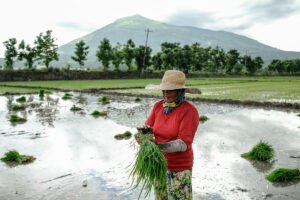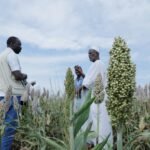By Zablon Oyugi, December 19, 2024, Dairy farmers in the drought-stricken Marsabit County in Kenya are poised to benefit from a new multi-million research initiative designed to tackle climate change challenges and transform the region’s dairy sector.
Under the ADAPTiVE Project being spearheaded by Jomo Kenyatta University of Agriculture and Technology (JKUAT) in partnership with the University of Copenhagen (Denmark), KALRO, University of Nairobi, and the Karare Women Dairy Cooperative in Marsabit County, the initiative aims to promote the dairy industry as a sustainable and reliable source of income for the Marsabit community.
Additionally, it aims to build sustainable economic growth and resilience by implementing innovative strategies specifically tailored to the unique challenges and opportunities within the county.
Funded by the Ministry of Foreign Affairs of Denmark (DANIDA), the project will focus on innovative livestock management and sustainable production to ensure food safety and improved market access to support the region’s dairy farmers, particularly women, who play a critical role in the local economy.
A stakeholder engagement forum hosted by JKUAT on Thursday, December 5, 2024, at the Movenpick Hotel officially launched the project. The event brought together partners, researchers, and community leaders to discuss strategies for its successful implementation.
According to Prof. Victoria Wambui Ngumi, JKUAT Vice Chancellor, the ADAPTiVE Project aims to bolster Kenya’s economy by enhancing its agricultural sector, a key foundation of the nation’s livelihood and growth.
” This project plays a critical role in advancing Kenya’s Vision 2030, national food safety policy, and global frameworks like the UN Sustainable Development Goals, which aim to eradicate poverty, end hunger, promote health and well-being, achieve gender equality, and combat climate change,” said Prof. Jackson Kwanza, JKUAT’s Deputy Vice Chancellor, Research, Production and Extension while presenting a speech on behalf of Prof. Ngumi.
On his side, Mr. Kasa Hussein, Marsabit County’s Director of Trade and Industry thanked stakeholder for pooling together to address the adverse effects of climate change on pastoral communities.
“Climate-resilient initiatives like the ADAPTiVE project are crucial for protecting our economic and social systems. By embracing sustainable practices and innovative solutions, we can tackle challenges effectively and open pathways for growth,” said Hussein while pledging his support for the project.
Prof. Jørgen Dejgård Jensen from the University of Copenhagen and the Project Principal Investigator highlighted that several strategies are in place to ensure the project’s success, including publishing scientific papers, increasing citations, and sharing updates through public media, among other initiatives.
Situated in Kenya’s arid and semi-arid lands (ASAL), Marsabit County frequently experiences droughts, endangering the livelihoods of its pastoralist population.
The ADAPTiVE Project collaborates with the Karare Women Dairy Cooperative, a women-led organization supporting female dairy farmers by providing market access.
By focusing on sustainable dairy practices and empowering women, the project aims to enhance community resilience against the adverse effects of climate change.







